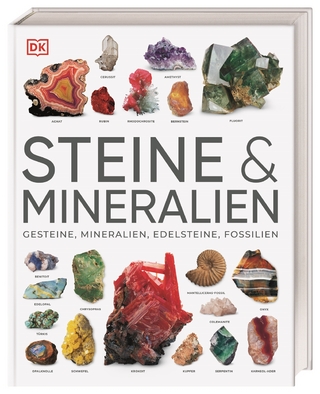
Complexity
The Evolution of Earth's Biodiversity and the Future of Humanity
Seiten
2016
Prometheus Books (Verlag)
978-1-63388-193-8 (ISBN)
Prometheus Books (Verlag)
978-1-63388-193-8 (ISBN)
- Titel nicht im Sortiment
- Artikel merken
This very readable overview of natural history explores the dynamics that have made our planet so rich in biodiversity over time and supported the rise and dominance of our own species.
Tracing the arc of evolutionary history, biologist William C. Burger shows that cooperation and symbiosis have played a critical role in the ever increasing complexity of life on earth. Life may have started from the evolution of cooperating organic molecules, which outpaced their noncooperating neighbors. A prime example of symbiosis was the early incorporation of mitochondria into the eukaryotic cell (through a process called "endosymbiosis"). This event gave these cells a powerful new source of energy. Later, cooperation was again key when millions to trillions of individual eukaryotic cells eventually came together to build the unitary structures of large plants and animals. And cooperation between individuals of the same species resulted in complex animal societies, such as ant colonies and bee hives.
Turning to our own species, the author argues that our ability to cooperate, along with incessant inter-group conflict, has driven the advancement of cultures, the elaboration of our technologies, and made us the most "invasive" species on the planet. But our very success has now become a huge problem, as our world dominion threatens the future of the biosphere and confronts us with a very uncertain future.
Thought-provoking and full of fascinating detail, this eloquently told story of life on earth and our place within it presents a grand perspective and raises many important questions.
Tracing the arc of evolutionary history, biologist William C. Burger shows that cooperation and symbiosis have played a critical role in the ever increasing complexity of life on earth. Life may have started from the evolution of cooperating organic molecules, which outpaced their noncooperating neighbors. A prime example of symbiosis was the early incorporation of mitochondria into the eukaryotic cell (through a process called "endosymbiosis"). This event gave these cells a powerful new source of energy. Later, cooperation was again key when millions to trillions of individual eukaryotic cells eventually came together to build the unitary structures of large plants and animals. And cooperation between individuals of the same species resulted in complex animal societies, such as ant colonies and bee hives.
Turning to our own species, the author argues that our ability to cooperate, along with incessant inter-group conflict, has driven the advancement of cultures, the elaboration of our technologies, and made us the most "invasive" species on the planet. But our very success has now become a huge problem, as our world dominion threatens the future of the biosphere and confronts us with a very uncertain future.
Thought-provoking and full of fascinating detail, this eloquently told story of life on earth and our place within it presents a grand perspective and raises many important questions.
William C. Burger is Curator Emeritus of the Department of Botany at The Field Museum of Natural History in Chicago, Illinois, and the author of the highly acclaimed Flowers- How They Changed the World and Perfect Planet, Clever Species.
| Erscheinungsdatum | 01.07.2016 |
|---|---|
| Verlagsort | Amherst |
| Sprache | englisch |
| Maße | 162 x 236 mm |
| Gewicht | 594 g |
| Themenwelt | Sachbuch/Ratgeber ► Natur / Technik ► Natur / Ökologie |
| Naturwissenschaften ► Biologie ► Botanik | |
| Naturwissenschaften ► Biologie ► Evolution | |
| Naturwissenschaften ► Biologie ► Ökologie / Naturschutz | |
| ISBN-10 | 1-63388-193-8 / 1633881938 |
| ISBN-13 | 978-1-63388-193-8 / 9781633881938 |
| Zustand | Neuware |
| Haben Sie eine Frage zum Produkt? |
Mehr entdecken
aus dem Bereich
aus dem Bereich
über 500 faszinierende Gesteine, Minerale, Edelsteine und Fossilien
Buch | Hardcover (2023)
DK Verlag Dorling Kindersley
26,95 €
Familien und Gattungen einheimischer Pflanzen
Buch | Hardcover (2022)
Haupt Verlag
64,00 €
vollständig aktualisierte Neuausgabe mit den zusätzlichen …
Buch | Softcover (2023)
Westend (Verlag)
22,00 €


